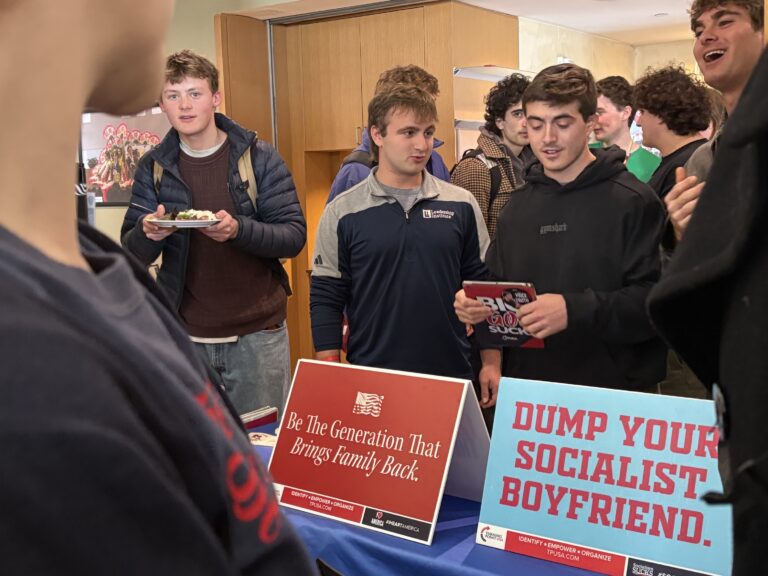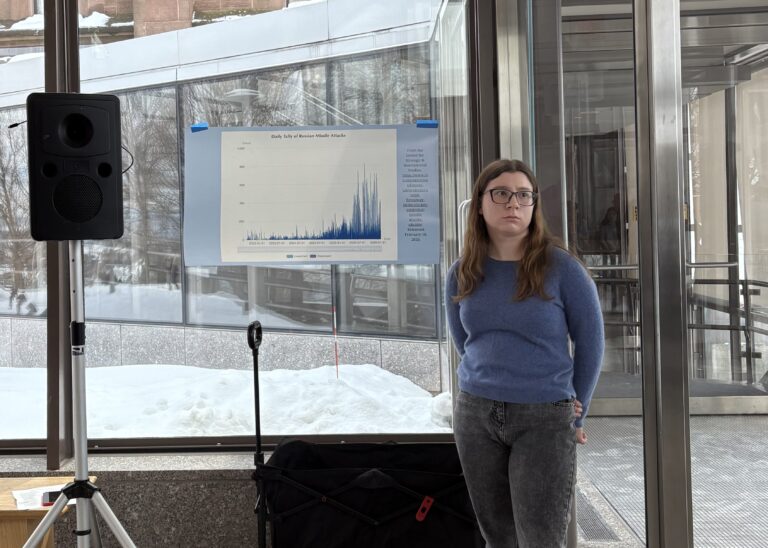WSA rejects SEWI resolution to divest from weapons contractors
The push to divest the University from three weapons contractors, only a few weeks ago a twinkle in the eye of campus anti-war activists, has now garnered attention from students and administrators alike. The developing controversy, expressed in clashing Wespeaks, negotiations with investment officers, and protests in front of the Office of Admissions, came to a head in an unusually heated WSA debate on Sunday concerning a resolution submitted by Erik Rosenberg ’08, the leader of the divestment campaign and a member of Students for Ending the War in Iraq (SEWI).
Rosenberg’s resolution called for divestment from weapons contractors Raytheon, Tyco, and General Dynamics. In the resolution, he cited the University’s commitment to socially responsible investing and argued that the school should not financially support any sort of violence-perpetuating institutions. WSA members, while signaling a general measure of support for Rosenberg’s statement, had a number of problems with it. Foremost among their objections was Rosenberg’s proposition that the school disassociate itself from all violence.
“I’m pretty sure we should divest,” said WSA member Chris Goy ’09. “But the argument isn’t against violence—it’s against the military-industrial complex.”
About half of the attending WSA members said they would agree with a modified resolution stating opposition to the Iraq War and, thus, to the companies that are involved in the war. At the same time, they questioned whether divesting would actually have an effect on the weapons contractors.
“What is our viable end in this approach?” said Mike Pernick ’10. “What if we do divest from these companies? What then? The only end game is we suffer from more budget cuts.”
It is not clear what the financial impact of a divestment would be. The University currently invests in 69 different companies, including big brand names such as Domino’s Pizza and Virgin Media. Money managers handle the investments for the University and, according to WSA Representative Matt Ball ’08, the school makes $24 million annually from investments. Vice President and Chief Investment Officer Tom Kannam, who has had discussions with Rosenberg and SEWI, was not available for comment.
Other WSA officials, such as WSA Representative JZ Golden ’08, disapproved of Rosenberg’s measure, whether it be modified or not.
“This would be a serious and bold decision,” Golden said. “It’s probably a rash decision.”
Golden cited the beneficial contributions by the defense contractors, such as their production of rubber hosing that is supplied to troops. Eric Spierer ’10 flatly stated his opposition to the measure, saying that the resolution did not take into account the contractors’ support for U.S. soldiers.
According to DefenseNews.com, part of the Army Times Publishing Company, Raytheon is presently the fifth largest weapons contractor in the world and has an annual revenue of $20 billion. General Dynamics is the sixth largest weapons contractor in the world and the contributor of $1.4 million to the 2004 presidential election, largely to Republican candidates. In 2005, Raytheon made $9.1 billion dollars from weapons contracts and General Dynamics made $10.6 billion. Some have raised concerns about the ethical conduct of these companies with regard to their contracts with the U.S. government.
By the end of the meeting, tensions were still high and the group was evenly divided between supporting a modified resolution and voting down the whole issue. And while much of the meeting was spent discussing the financial questions, Benedict Bernstein ’09 concluded with what he saw as the real issue at hand.
“This is not a question of Wesleyan being able to economically cripple or even hurt these companies,” Bernstein said. “This is question of principles and whether or not we as representatives of the student body believe, on principle, that investing in weapons contractors is wrong and something Wesleyan should not do.”







Leave a Reply